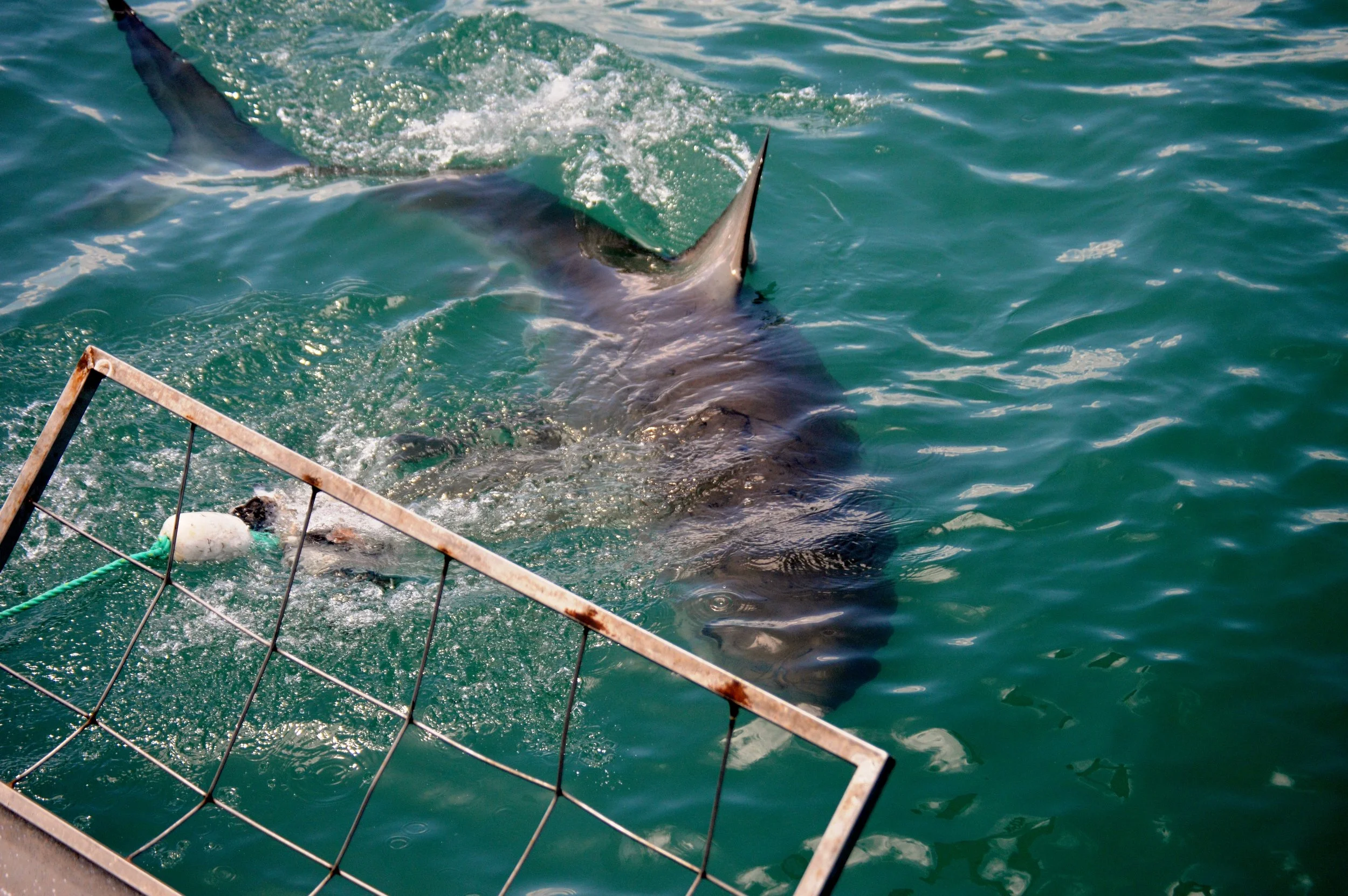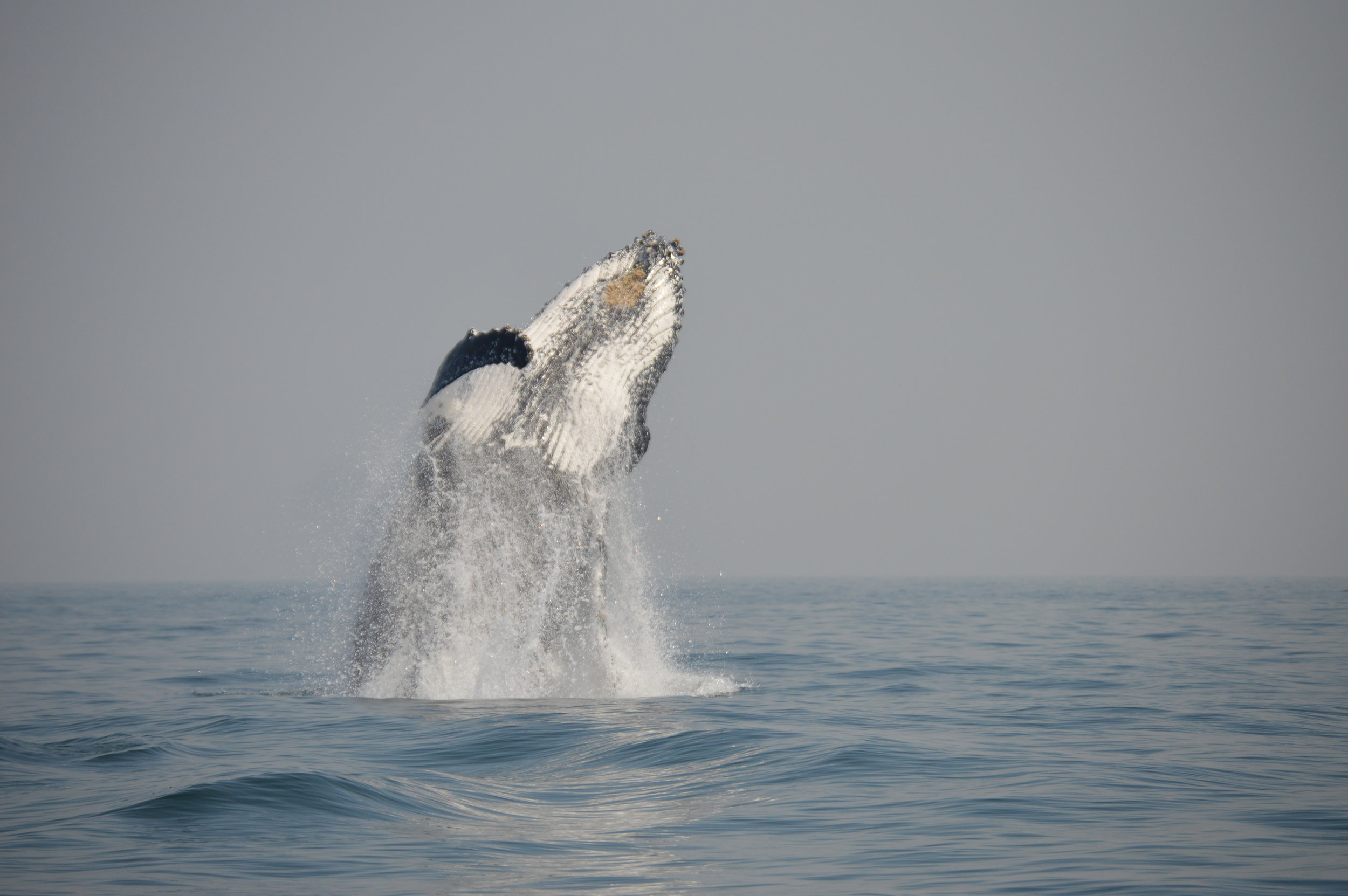Expanding “Green Choices” into the Blue Economy of Marine Tourism
Sally Sivewright
The consumer landscape is shifting with the acceptance and advocacy of a growing eco-movement; green corporates becoming the trendier choice. In South Africa, the number of restaurants supporting sustainable fisheries and serving only WWF SASSI-approved green seafood choices has increased in recent years. Small towns along our rugged and extensive coastline have been making a concerted effort to be mindful of the wellbeing of our ocean by not only choosing green to alleviate pressure on our dwindling fish stocks but by taking an active role in becoming plastic-free.
Plettenberg Bay prides itself in its promotion of responsible consumerism and its support of sustainable industries. Why stop there? A team of local marine scientists are now working to ensure that the country’s marine tourism sector is operating within the sustainable parameters associated with this green movement.
Whale watching in Plettenberg Bay. Photo: Sally Sivewright
The Global Picture
Encounters with marine wildlife is a fast-growing industry worldwide and includes boat-based viewing of a number of species, cage-diving with the likes of great white sharks, swimming/snorkelling and diving with anything from turtles to whale sharks, feeding dolphins, touching grey whales and experiencing the mighty Sardine Run.
The global legislative state of commercial marine wildlife interactions differs drastically from country to country. To ensure ethical conduct within the industry, some countries have imposed strict rules and regulations, introduced permitting systems, established closed areas and even limited the number of operators per region. The situation in other countries, however, is more negligent with the best-case scenario being that operators only have a self-regulating code of conduct on which to depend. Pods of killer whales surrounded and being harassed by a crowd of whale-watching vessels is an all too common sight in the northern hemisphere. The impacts of the marine tourism industry, on the very animals on which it depends, are becoming more widely acknowledged and documented. The International Whaling Commission (IWC), together with the Conservation of Migratory Species of Wild Animals (CMS), has recently launched an interactive whale-watching handbook “designed to support managers, regulators, operators and everyone interested in whale watching”. The site accesses industry information from over 30 countries and covers such topics as responsible management, trip expectations, species factsheets, while also including region-specific legislation and regulations.
Humpback whale breach in Plettenberg Bay. Photo: Sally Sivewright
South Africa: A Case Study
South Africa has two permitted commercial marine tourism industries; the aforementioned BBWW, first becoming regulated in 1998, and white shark cage-diving (WSCD), the first operators of which becoming legal in 2000. 40 BBWW permits are available for allocation in 28 gazetted areas while 13 WSCD permits were awarded in three operational zones. The swim-with-seals industry has more recent beginnings; the first company only starting in 2009 by taking clients to an island colony of Cape fur seals off Hout Bay in Cape Town. We now have eight companies along our coast. While being regulated by regional nature conservation authorities, the swim-with-seals industry remains unpermitted by national government.
Cage diving with Great Whites in Gansbaai. Photo: Sally Sivewright
South Africa has some of the strictest legislation in the world, with regards to some sectors of marine tourism, but it is a rapidly growing industry and the sustainability of this has not yet been investigated. Plettenberg Bay provides the perfect location for such investigations. The rich biodiversity and beautiful natural setting of Plett not only affords residents and visitors a vast assortment of awesome marine-based adventures, boat-based whale-watching and swim-with-seals being the highlight of many travellers’ expeditions, it also presents numerous opportunities to study various aspects of marine-life and our impacts on it.
Humpback whale breach in Plettenberg Bay. Photo: Sally Sivewright
The Nature’s Valley Trust Marine Research Unit has undertaken to do just that by joining forces with the WWF Nedbank GreenTrust and Nelson Mandela University to launch the ‘Marine Tourism Sustainability Project’. The key aspect of this study is to ensure ethical industry conduct and to balance client expectations with the wellbeing of the whales and dolphins being viewed. The research encompasses behavioural observations of marine mammals in the bay both in the presence and absence of vessels from land and sea, spatial mapping of bay use and looking into public attitudes. The aim of the project is to advise on policies in order to make sure the industry is sustainable and ethical while also raising awareness and creating educational tools.
For the unpermitted swim-with-seals industry, the Marine Unit are teaming up with the Department of Environmental Affairs to investigate the potential behavioural responses of the seals to the activities and subsequently provide scientific recommendations towards sustainable industry practice and effective regulation.
You can learn more about our research team by watching a short video on the women behind this important work. As we dive deeper into these two projects, and develop #BaywatchPlett, we are excited to gain an understanding of how best we can #ShareTheSeas with the incredible marine mammals that use our beautiful bay.
Swimming with Cape Fur Seals in Hout Bay. Photo: Sally Sivewright
Environmentally Conscious Choices - What You Can Do
Be Aware. Even though its focus is whale-watching, the IWC Whale-Watching Handbook is a great place to start as it highlights points to keep in mind when selecting any type of marine tourism operator.
Only support legitimate companies such as those that are permitted (in permit-regulated areas) and promote ethical conduct, actively create awareness, and contribute to conservation efforts.
Familiarise yourself with the rules and regulations governing that operator, ask questions (especially when you feel that the operator is contravening any part of their permit, where applicable, or behaving unethically) and publicly report back about your experience on platforms such as TripAdvisor.
Support our sustainability research by following our project @NVT or by donating to aid the important work underway! Donations will go directly towards areas in current need including boat running costs and media equipment costs. You can donate here. Make sure to reference ‘Marine Tourism Project’ so we can ensure donations go directly to the project.
The power of change lies within our choices, choose ethically and with our environment in mind.





